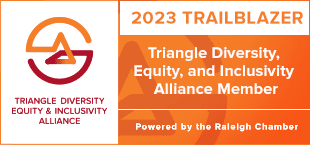Over 150,000 workers laid off in the tech industry over the last several months. The number is staggering. Google, Amazon, Meta, Twitter, Salesforce, and the list goes on. Housing markets are also cooling with lenders and real estate brokerages cutting jobs. All of this trickles down to retailers and manufacturers. You get it. The knee bone is connected to the arm bone. Yet somehow we’ve managed to stay out of a dreaded recession (allegedly).
With the economy undoubtedly in an uncertain state, there is some good news for certain sectors. Perhaps one of the brightest futures is that of higher education. Historically, there’s a clear inverse relationship between economic declines and higher education enrollment, and all indications are we’re at a crossroads again.
This year, higher education institutions can certainly expect to see an uptick in demand for their products and services as more individuals look to gain new skills or transition into a different profession—either by choice or necessity. But that doesn’t mean recruiting becomes any easier. Quite the opposite. Thanks to the COVID-19 pandemic, online offerings are exceedingly robust. This means potential enrollees have a plethora of options that weren’t previously available in similar economic circumstances. However, there are a few things that should be emphasized when considering ad messaging and media targeting.
Soft skills in particular will take precedence as employers seek standout talent with strong communication, problem-solving, and creative thinking abilities. To capitalize on this trend, higher education brands need to make sure they’re highlighting the soft skills they can teach in their advertising efforts. Leadership training, team management, negotiation, and even conflict resolution are all skills that can be invaluable in the workplace and should be front-and-center in any higher education campaign. This is a considerable shift from an emphasis on the hard skills that have generally led to the overhiring practices over the past few years—abundantly evident in the tech industry.
In addition to highlighting soft skills, higher education brands need to emphasize their job placement rates or other advantages they offer to students. This is often an overlooked selling point when colleges and universities rely on their brands to communicate exclusivity. In today’s incredibly diverse online education space, it’s not so much about where the degree or certification comes from as much as how customized or tailored the skill sets are to both an enrollee and their potential future employers.
In other words, this is not the time for selling solely on prestige or brand legacy. The economy dictates that graduates must have skills that are valuable regardless of the economic conditions. And they need to be able to show them through results-driven initiatives. Higher education institutions that have this clear focus should be well-positioned with their advertising efforts to capitalize on the current economy’s unique circumstances.









